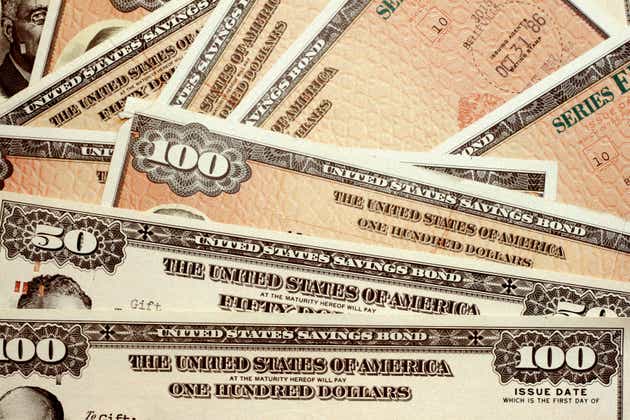A deal over the debt ceiling was reached just
over two months ago, but the political dysfunction in Washington and the growing debt burden still seems to be a concern. Fitch Ratings has
downgraded the United States' long-term rating to AA+ from AAA, echoing a move made by S&P Global Ratings, which cut its rating for the U.S. in 2011 after a different government standoff. Fitch had placed America's sovereign status on
watch negative back in May, but the bipartisan agreement to suspend the debt limit until January 2025 wasn't enough to calm its fears.
Why credit ratings and agencies matter to investors. Key rating drivers: "The repeated debt-limit political standoffs and last-minute resolutions have eroded confidence in fiscal management," according to Fitch. "In addition, the government lacks a medium-term fiscal framework, unlike most peers, and has a complex budgeting process [and] the GG (General Government) debt-to-GDP ratio is projected to rise over the forecast period, reaching 118.4% by 2025. These factors, along with several economic shocks as well as tax cuts and new spending initiatives, have contributed to successive debt increases over the last decade."
How much is too much for the U.S. national debt?Treasury Secretary Janet Yellen said she "strongly" disagreed with the downgrade, calling it "arbitrary" and saying that Fitch relied on "outdated" data. Many of the measures that the ratings company uses, "including those related to governance," have "shown improvement over the course of the administration, with the passage of bipartisan legislation to address the debt limit, invest in infrastructure, and make other investments in America's competitiveness," she declared. Stock futures declined following Fitch's decision, while the yields were volatile as investors assess the outlook for the $25T global Treasury market.
Is the debt ceiling constitutional and has the U.S. ever defaulted? What to watch: It was only two weeks ago that President Biden
created a team to assess ways to avert future standoffs over the country's debt limit. "Now that the latest debt ceiling crisis is behind us, it is necessary to explore all legal and policy options to prevent Congress from ever again holding hostage the full faith and credit of the United States," the White House statement said at the time. The working group, consisting of administration officials and no Republican members, is being led by White House Counsel Stuart Delery and National Economic Council Director Lael Brainard. (
67 comments)











No comments:
Post a Comment